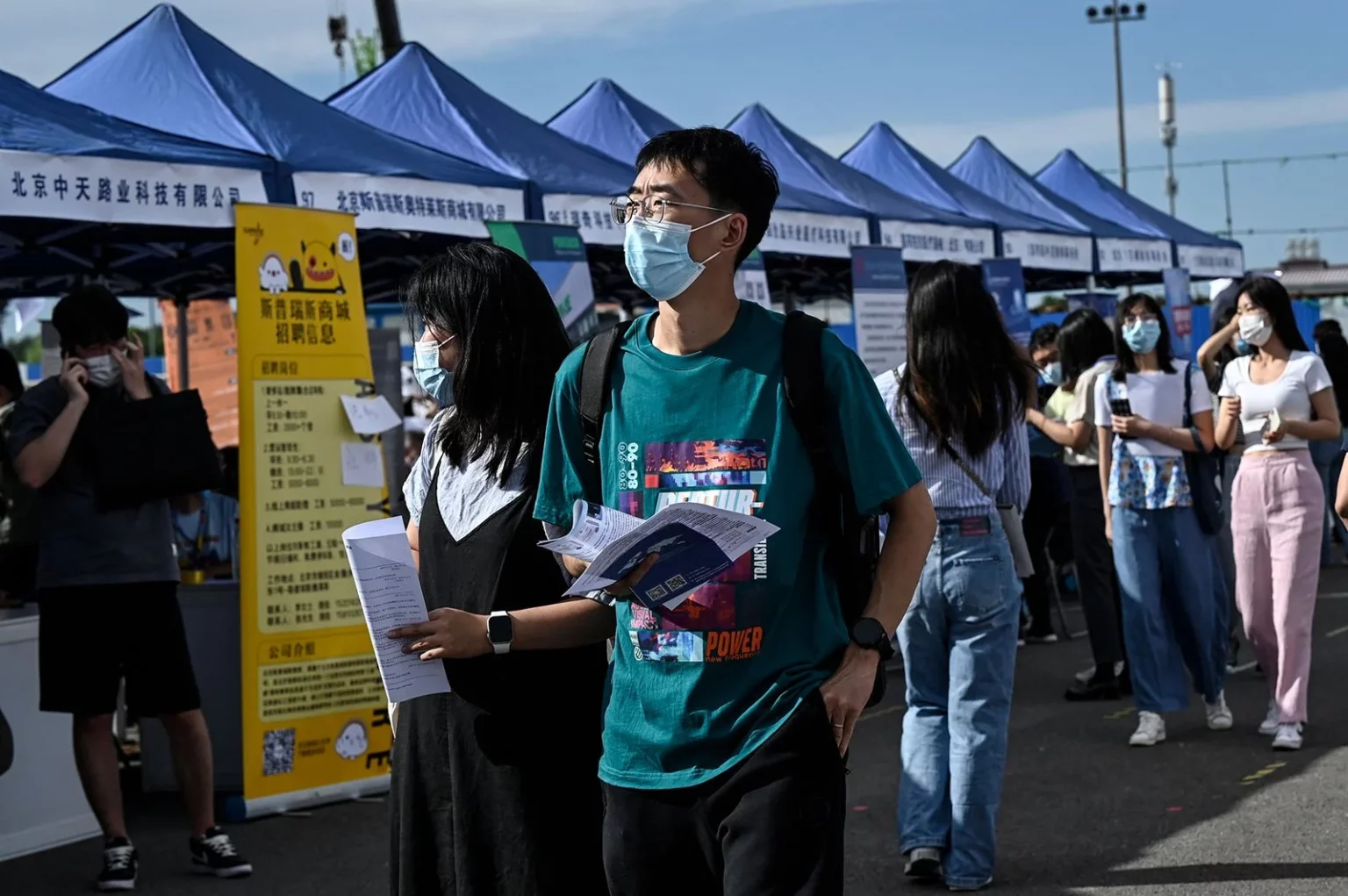China, the world’s second-largest economy, is keeping the lid on its youth unemployment figures, citing shifting economic dynamics and social changes as reasons for the decision. This move comes as observers raise concerns about the country’s economic slowdown, and it follows a record-high jobless rate among urban residents aged 16 to 24 that surpassed 20% in June. The decision not to disclose these figures is seen as an attempt to navigate the evolving economic landscape.
Previously, China’s central bank had taken steps to bolster growth by cutting borrowing costs, an effort triggered by concerns about the nation’s economic trajectory. However, the recent figures indicating an unemployment rate of 5.3% in July prompted the government to suspend the publication of youth joblessness data without setting a definite timeline, as reported by the BBC.
During a press conference in Beijing, a spokesperson from the National Bureau of Statistics emphasized the need to reconsider the method used to calculate youth unemployment. Fu Linghui, the spokesperson, acknowledged the constantly changing nature of the economy and society, indicating that continuous improvements in statistical methodologies are imperative.
Fu further suggested that certain factors, such as an increase in the number of students within the 16 to 24 age range, might have contributed to the unemployment rate. Notably, China has historically excluded individuals within the education sector from its count of the unemployed.
China initiated the release of youth unemployment figures in 2018, but these statistics lack insights into rural employment status. The suspension of these figures’ publication sparked discussions on Weibo, a prominent local social media platform.
Critics expressed doubts about the effectiveness of concealing information. One commentator questioned, “Can problems really be solved by covering your mouth and closing your eyes? With diverse forms of employment, gradual employment, and autonomous employment, even working for just one hour could mean not being unemployed. The statistics from the Bureau of Statistics should not be taken seriously.”
Another post commented cynically, “As long as I don’t announce it, then nobody is unemployed.”
To address the challenges of a post-pandemic economic recovery, China’s central bank unexpectedly slashed key interest rates for the second time in three months on Tuesday. The goal is to invigorate growth, especially in the face of declining exports and the looming specter of deflation leading to price decreases.
Julian Evans-Pritchard from Capital Economics raised a cautionary note, saying, “There is a real risk of the economy slipping into a recession unless policy support is ramped up soon.”
Furthermore, China’s property market is grappling with significant concerns due to the challenges facing the crisis-ridden industry. Country Garden, China’s largest private real estate developer, sounded a warning, projecting potential losses of up to $7.6 billion (£6 billion) for the first half of the year.
The property sector has been deeply impacted by new regulations introduced in 2020, and the subsequent default by Evergrande in the following year has led to a cumulative loss of CNY 581.9 billion ($81.1 billion; £62 billion) over the past two years.




